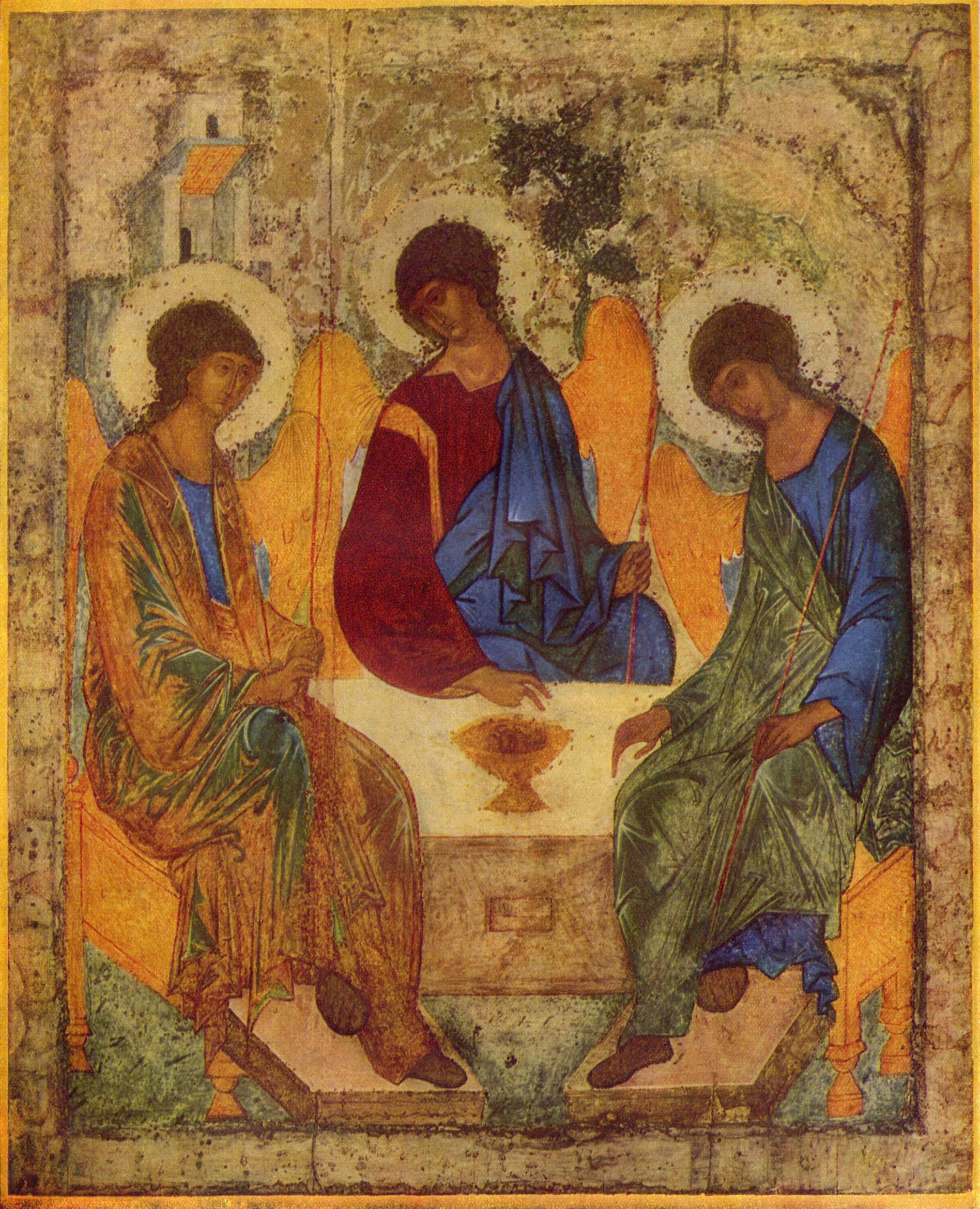A while back, I counted all the Sundays in the three-year church calendar that I have never preached. I keep all of my sermons on my computer, so I can look at them and see pretty quickly which ones are missing. I wasn't surprised to see that propers like the 9th Sunday after Epiphany were missing because that's one of those sets of lessons that we only hear when the first Sunday after the Epiphany early (like January 7) and Easter falls really late (like April 23). But there were a few right in the middle of things that in my decade or more of ordained ministry I had never preached. I've been crossing them off every so often, and my list is shrinking.
Throughout that whole time, however, I have never served in a "Track 1" parish. During the season after Pentecost, the RCL gives us two different tracks for the Old Testament readings. Track 2 follows the old BCP lectionary pretty closely, choosing passages that are thematically related to the Gospel lesson. Track 1 offers a "semi-continuous" approach to the Old Testament, starting in a book of the bible like Genesis or Ezekiel and more or less working its way through it, hitting the highlights that we might otherwise never get in the Sunday lectionary. I've always chosen Track 2 because, even when I am only preaching on the Gospel text, I like for us to hear resonances in the Hebrew tradition. Well, after all these years, I've decided to make a change. Beginning this Sunday, we'll use Track 1 for the next three years, giving the congregation and the preachers a chance to hear something a little different. But the funny thing is that the "semi-continuous" reading from Genesis 18 has as much to do with the Gospel lesson as the so-called "Gospel-related" reading from Exodus 19.
One day, the Lord appeared to Abraham by the oaks of Mamre. My friend and colleague Bill Murray, who creates an icon every year, is working on the "Hospitality of Abraham," that image made famous by Andrei Rublev. When I hear these words of Abraham welcoming the Lord in the form of three angel-persons (the bible makes it hard to tell), I cannot help but see this image, and I look forward to seeing his when he is finished.
Image from Wikimedia Commons
For most of human history, the opportunity to provide hospitality to a stranger has been an important social and religious expectation. Travelers in the wilderness may not find enough water or food to survive if they were turned away. Impromptu hosts never knew whether they were welcoming a rich benefactor or a temperamental warlord, and the nature of their hospitality might radically alter their future. Welcoming someone was an opportunity not only to provide for the one in need but receive the joy of human companionship in a desolate land.
When Abraham welcomed these three visitors, he hurried to provide the best that he had for them. He urged his wife to make cakes from choice flour. He took a tender, young calf and slaughtered it--evidence of genuine sacrifice for the strangers' benefit. He made a table for them and let them eat while he stood off at a distance, ready to serve them further. And, in the space he made for them, God showed up and offered Abraham and Sarah a blessing. One of the visitors said, "I will surely return in due season, and your wife Sarah shall have a son."
In the reading from Matthew 9, we hear of Jesus' sending out of the disciples. He sends them "as sheep in the midst of wolves," with no bag or money or extra supplies for the journey. He is sending them out as vulnerable as the desert traveler who knows not whether an oasis spring lies within walking distance. He invites them to trust that they will be met by people sympathetic to their journey, and he tells them to look for the opportunity to allow God's blessing to descend upon those who make space for them: "If the house is worthy, let your peace come upon it."
In some ways, these lessons are about serving as a disciple--one who travels light, bringing little more than the good news of Jesus with her or him. In other ways, they are about serving as a host--one who recognizing the opportunity that knocks on the door and makes space for God to come in. Not long ago, our bishop mentioned in his sermon that older homes had big front porches on them, where residents could sit and see one another and visit as they walked down the block. Nowadays, houses have back decks that are surrounded by privacy fences. We are as reluctant to knock on a stranger's door as we are to open it when a stranger knocks.
Maybe there are non-literal ways for us to visit and welcome one another in the name of the Lord, but I think these lessons are, in part, an encouragement to do some old-fashioned visiting. Perhaps we should stop short of knocking on a stranger's door and asking to spend the night, but maybe we could knock and say hello, ask how we might pray for that person, see if there is anything they need. Can you imagine how shocking it would be if someone knocked on your door and asked if you needed prayer? Bob Leopold and the Abbey in Chattanooga used to make pickles and deliver them to strangers as a way to get people to open up about their stories. I don't know what will happen when a stranger knocks on my door or when I knock on a stranger's door, but I trust that God will be with us in the space that opens up. Will it be a foot-wide crack in the door or a wide-open living room?

No comments:
Post a Comment
Note: Only a member of this blog may post a comment.